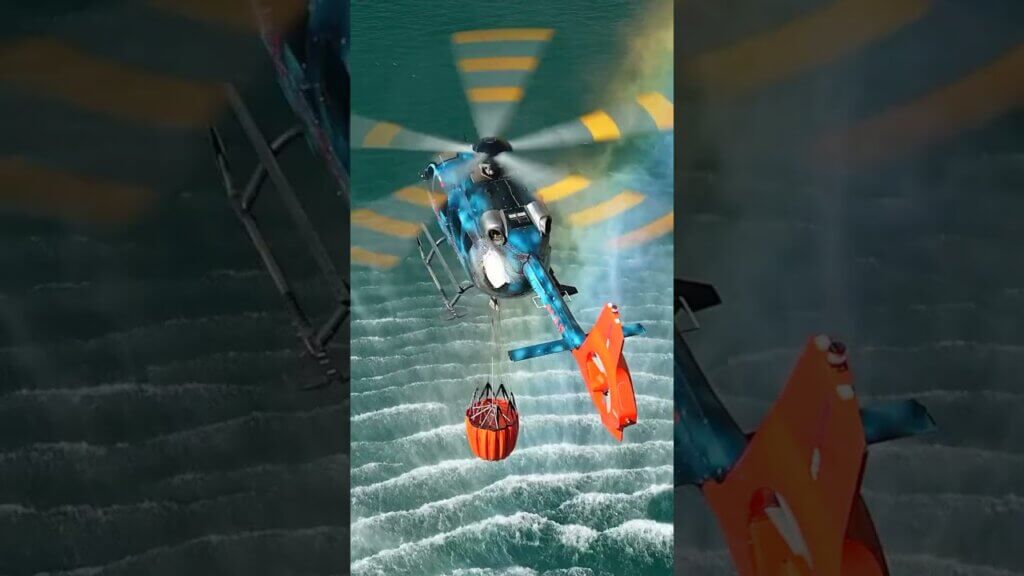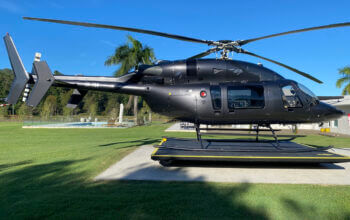Archer Aviation is downplaying the impact of an apparent change in how the U.S. Federal Aviation Administration (FAA) will certify eVTOL aircraft, saying the company is still on track to certify its first vehicle by the end of 2024.

In a first quarter earnings call on May 12, the company responded to a report from The Air Current that described forthcoming changes as a “massive regulatory shift” injecting new uncertainty into the certification programs of leading developers in the U.S.
“We’re still working with the FAA to understand the full extent of the change,” said Adam Goldstein, CEO of Archer. “But in our view today, this is largely just an administrative change. In fact, we think this could streamline important aspects of the efforts to bring these vehicles into commercial service.”
The shift in regulations would see winged eVTOLs certified as powered-lift aircraft under its “special class” process in 14 Code of Federal Regulations 21.17(b), rather than as small fixed-wing aircraft under 14 CFR Part 23 rules.
This measure is intended to “more easily tie the vehicle airworthiness regulations … to the operational regulations — things like pilot training,” Goldstein said. “The rationale for doing this was really to streamline the policy framework to support the commercialization of these vehicles.”
Responding to an analyst’s question, Goldstein described the shift as a “minor change,” and one of many small hurdles Archer may need to endure as the industry evolves.
“A change like this, we don’t think impacts us,” he said.
Archer’s response is in contrast to what some industry experts have reportedly said about the impact of these changes on existing certification timelines.
“It’s not clear that the agency really thought this through,” Mike Hirschberg, executive director of the Vertical Flight Society, wrote in a tweet. “This does not bode well. 21.17(b) contributed to the significant delays in the AW609 certification.”
Hirschberg told eVTOL.com that while the FAA has promised that this change will not delay the airworthiness certification timelines of eVTOL companies, “the 21.17(b) framework is not recognized internationally and may cause many more problems than the FAA seeks to solve. We believe that this approach is to the detriment of safety, expediency and the U.S. leadership in eVTOL.”
Flight testing to resume
Archer plans to resume flight testing of its Maker demonstrator aircraft in May or early June, after pausing flights following its first successful hover flight in December 2021.
Data from that hover flight was used to validate performance of the aircraft, and Archer has since focused on upgrading Maker to prepare for its first full transition flight later this year, said Tom Muniz, the company’s chief operating officer.
The major notable upgrade is installing the tilt rotor system that will be used to control the vehicle through transition flight.
Maker is designed to take off vertically using 12 electric motors, accelerate forward with tilted rotors, and then fly with lift generated by its wings. The company plans on ramping up its flight test program later this quarter, potentially with multiple flights per week.
“I’ve been super happy with the progress of the team, and just want to reiterate that we’re on track for our first full transition this year,” Muniz said. “I’m super confident we’ll get it done.”
Vision question addressed
Archer did not directly address the reported departure of company co-founder and former co-CEO Brett Adcock from the company’s board of directors.
Adcock stepped down as co-CEO on April 18, and said at the time he would stay on as a member of the board. Adcock announced in a since-deleted Twitter post on May 9 that he has also resigned from the board, citing differences in his vision for the company.
Goldstein used the May 12 earnings call to emphasize consistency in the company’s vision.
“The vision of the company has always been intact and unwavering since day one,” he said. “The goal was really to build a vehicle — take it to commercialization — that’s safe, that’s quiet and that’s affordable … to the masses. We are on track to complete that vision. The goal is to get certified by the end of 2024. The board supports that, the executive team supports that, so there’s really been no change there at all.”
At the time of publication, Adcock had not yet announced his immediate next steps, but in a statement provided by a spokesperson, Adcock said he “felt it was an appropriate time to separate fully from the company. We built a strong team at Archer, and I wish them great success.”
He and Goldstein created Archer after partnering to launch and grow the Vettery software company, which was acquired for $110 million by The Adeco group in February 2018.
Archer announced a $39.1-million loss in the first quarter of 2022 on adjusted earnings before interest, taxes, depreciation and amortization (EBITDA).
The company said it had $704.2 million in cash and cash equivalents at the end of Q1, and Goldstein emphasized the company is on track to meet its goals for 2022.
“We are a well-capitalized and growing company with a singular mission: To advance the benefits of sustainable air mobility for all,” he said.









Just how complete is their prototype if no prop tilting system is in place ? ONLY being able to hover gets you nowhere (pun intended) — it seems to be taking inordinate time for all these highly staffed and funded firms to get to the stage of flying normally (like a good ultralight in performance) no doubt the 737 Max experience is uppermost in the FAA’s mind — how do you certify millions of lines of software needed to tame an unstable aircraft?